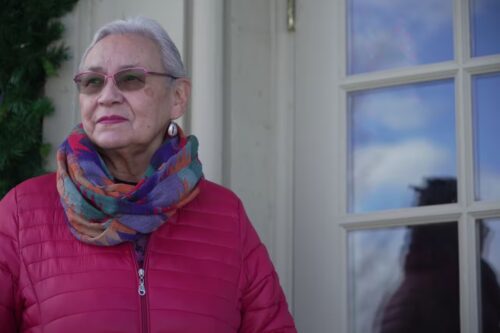
Cambridge, MA – A team of researchers from Harvard, the University of Arizona and UCLA today released the results of its study dissecting the US Department of the Treasury’s formula for distributing first-round CARES Act funds to Indian Country. The Department has indicated that its formula is intended to allocate relief funds based on tribes’ populations, but the research team finds that Treasury has employed a population data series that produces arbitrary and capricious “over-” and “under-representations” of tribes’ enrolled citizens.
On May 5, 2020, Treasury Secretary Mnuchin and Interior Secretary Bernhardt jointly announced that the first $4.8 billion of $8 billion of CARES Act funding for tribal governments would be allocated across the nation’s 574 federally recognized tribes in proportion to tribal populations. To implement this, Treasury chose to use a data series that has been used by the Department of Housing and Urban Development (HUD) in the distribution of Indian Housing Block Grant (IHBG) monies.
No comprehensive list of the resulting funding totals for tribes exists publicly. The researchers, however, have used the publicly available population information from HUD’s IHBG website to replicate Treasury’s stated approach. The results are calculations of CARES Act allocations for every tribe in the country that is covered by the HUD data. Key takeaways from the team’s analysis include:
- Different tribal population data series are available, and different series give rise to very different allocations of CARES Act dollars.
- The HUD data series Treasury has chosen purportedly measures, for each reservation, the number of residents who report their race as solely American Indian and Alaska Native (AIAN) or AIAN in combination with one or more other races.
- The data used by Treasury report a number of tribes as having no population (e.g., because they do not participate in HUD’s IHBG housing program) and the chosen series is materially inconsistent with both US Census Department data and tribes’ own data.
- The CARES Act dollars are specifically earmarked for tribal governments. Thus, the case is strong that Treasury should have used data on each tribe’s population of enrolled tribal citizens. These counts were requested by Treasury and submitted by tribes in mid-April but were not subsequently used by the Department to allocate the CARES Act funds. The resulting allocations demonstrably leave some tribes as “over-represented” and some tribes as “under-represented.”
Contact
For further information, contact Megan Hill, Program Director, Harvard Project on American Indian Economic Development Director, Honoring Nations, at Megan_Hill@hks.harvard.edu.
About the Harvard Project on American Indian Economic Development
The Harvard Project on American Indian Economic Development is based in the Ash Center for Democratic Governance and Innovation at the John F. Kennedy School of Government, Harvard University. The Harvard Project aims to understand and foster the conditions under which sustained social and economic development is achieved among Indigenous nations in the US and beyond.
About the Native Nations Institute
The Native Nations Institute at the University of Arizona’s Udall Center for Public Policy is a self-determination and self-governance resource for Native nations, providing professional development, policy analysis, and research to Indigenous leaders, tribal governments, and their partners worldwide.

